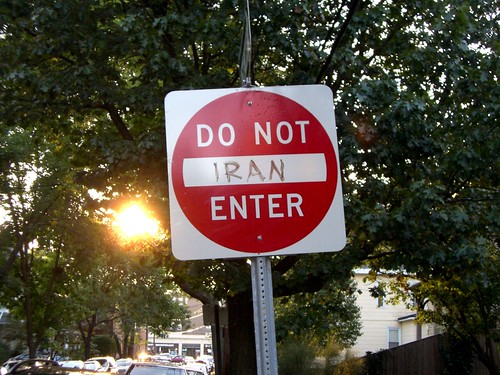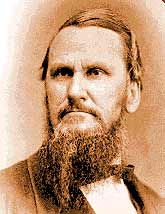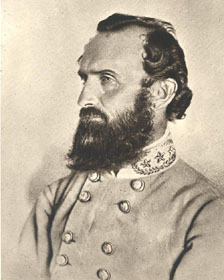No one in the Church, I would put forth, has been surprised by the barrage of positive PR oozing out of Hollywood in support of its latest attempt to unfasten the moral fiber of our society--the homoerotic filth from Ang Lee known as 'Brokeback Mountain.'
Lost in the justified furor by many professing Christians is the heart of the plot of the film. Say what you will about its glorification of a perverse and aberrant lifestyle, I have heard not one voice speak to another (almost more glaring) aspect--the main characters, whilst carrying on their long sodomitic journey, are betraying their wives and families. That's right, queer or not, they are SERIAL ADULTERERS! Has that escaped the notice of most folks?
In my opinion, the pro-homo agenda is enough to keep me as far away from any theatre showing that film as possible; but the manner in which the adultery is accepted (or at best unnoticed) is alarming to me. I am afraid that, if it were a man and a woman involved (wouldn't that be refreshing in and of itself?), the movie would have slipped under the radar and evoked no controversy at all--and that is what is really sad.
The Church will, apparently, tolerate Hollyweird's incessant glorification of lust, fornication, and adultery with nary a peep. (How else do we account for the millions of dollars these films make?)
Friday, January 13, 2006
Monday, January 09, 2006
Reconciling the Impossible
As my wife and I continue down the path of Reformed Theology which we first tread two years ago, we are continually confronted with the reality of human finiteness and the need to rest—to completely rest—in our faith.
When one begins to attain a better (yet never complete) understanding of Scripture, he is consistently recognising that God’s Word contains innumerous antinomies, or ideas and concepts (doctrinal positions, etc.) which appear diametrically opposed to one another. Yet, we know that God does not contradict Himself—and He cannot deceive or lie.
One such antinomy that has generated hours of discussion between my bride and me is that of God’s decretive will (which, of course, follows naturally from a candid discussion of predestination). We are told, in the Word, that God is sovereign and that everything that comes to pass has been ordained (decreed) by God beforehand. In fact, all that has existed or ever will exist does so only with the supportive will of God. His will sustains the universe. We are also told that we are responsible for our actions, which certainly includes our sin.
How can this be?
It was while we were discussing this on a drive home through the country that it hit me. It is, at least to our finite intelligence, impossible for God’s decretive will and our free agency (as distinguished from free will) to coexist. In other words, it is impossible. Yet, it is also impossible to walk on water, turn water into wine, give sight to the blind (apart from modern medical procedures), raise the dead, and be resurrected. So, why do we, the faithful, accept the latter impossibilities ascribed to an omnipotent God who can do the impossible, yet, as it pertains to seemingly contradictory concepts, find it difficult to reconcile?
Reconciliation of the antinomian aspects of doctrine and theology is quite simple, actually. If something is impossible, it cannot be done—outside of the miraculous actions of God, who is not constrained by the laws of the universe. There cannot be varying degrees of impossibility. One thing cannot be less impossible than another; to be so, means that it is nearer to being possible. However, it cannot be almost possible without still being…impossible.
Therefore, if we are able to accept the one impossible act (walking on water, resurrection of the dead, etc.), we should be willing to fully accept the other, such as the relationship of God’s decretive will and human free agency/ responsibility. Both are, in human terms, equally impossible and still, in God’s terms, perfectly enacted.
When one begins to attain a better (yet never complete) understanding of Scripture, he is consistently recognising that God’s Word contains innumerous antinomies, or ideas and concepts (doctrinal positions, etc.) which appear diametrically opposed to one another. Yet, we know that God does not contradict Himself—and He cannot deceive or lie.
One such antinomy that has generated hours of discussion between my bride and me is that of God’s decretive will (which, of course, follows naturally from a candid discussion of predestination). We are told, in the Word, that God is sovereign and that everything that comes to pass has been ordained (decreed) by God beforehand. In fact, all that has existed or ever will exist does so only with the supportive will of God. His will sustains the universe. We are also told that we are responsible for our actions, which certainly includes our sin.
How can this be?
It was while we were discussing this on a drive home through the country that it hit me. It is, at least to our finite intelligence, impossible for God’s decretive will and our free agency (as distinguished from free will) to coexist. In other words, it is impossible. Yet, it is also impossible to walk on water, turn water into wine, give sight to the blind (apart from modern medical procedures), raise the dead, and be resurrected. So, why do we, the faithful, accept the latter impossibilities ascribed to an omnipotent God who can do the impossible, yet, as it pertains to seemingly contradictory concepts, find it difficult to reconcile?
Reconciliation of the antinomian aspects of doctrine and theology is quite simple, actually. If something is impossible, it cannot be done—outside of the miraculous actions of God, who is not constrained by the laws of the universe. There cannot be varying degrees of impossibility. One thing cannot be less impossible than another; to be so, means that it is nearer to being possible. However, it cannot be almost possible without still being…impossible.
Therefore, if we are able to accept the one impossible act (walking on water, resurrection of the dead, etc.), we should be willing to fully accept the other, such as the relationship of God’s decretive will and human free agency/ responsibility. Both are, in human terms, equally impossible and still, in God’s terms, perfectly enacted.
Subscribe to:
Posts (Atom)





